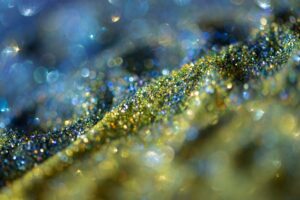Your Morning Might Feel Clean—But Is It?
You roll out of bed, brush your teeth, hop in the shower, grab a fresh outfit, brew some coffee, and maybe light a candle or spray a little scent. It’s a routine millions follow without a second thought.
But behind the scenes, those choices add up—on your energy bill, your trash bin, and the planet.
This post unpacks how your seemingly simple morning habits contribute to environmental harm—and what you can do to start the day cleaner in a different way.
The Products You Use Before 9 AM
Before breakfast, you’ve likely already interacted with 10–15 products. Here’s what many people use—and what’s often hidden behind the label.
1. Toothpaste and Oral Care
Most toothpaste tubes are non-recyclable multilayer plastics.
Popular brands contain microbeads, triclosan, and fluoride additives that may disrupt aquatic ecosystems when rinsed.
Floss? Almost always nylon-based plastic that goes straight to landfill.
2. Shower Gels and Shampoo
Many are packaged in virgin plastic bottles.
Common ingredients include SLS (sodium lauryl sulfate) and synthetic fragrance, which don’t break down easily and can enter waterways.
Hot showers use 2.1 gallons per minute, and most people run water while soaping or shaving.
3. Razors and Shaving Cream
Disposable razors are typically not recyclable and are used for only a few shaves.
Shaving creams often contain propellants, aerosol packaging, and petroleum-derived ingredients.
4. Deodorant and Body Sprays
Most deodorants use aluminum-based compounds and plastic casing.
Sprays may emit VOCs (volatile organic compounds) that contribute to indoor air pollution.
5. Candles and Air Fresheners
Paraffin candles are petroleum-based and release formaldehyde when burned.
Aerosol sprays contain phthalates and synthetic fragrance chemicals that linger in air and dust.
The Impact of Clothing and Laundry
Most morning routines include getting dressed. Here’s the hidden layer:
Polyester, nylon, and spandex dominate closets and shed microfibers when washed.
These fibers escape wastewater treatment and end up in rivers, oceans, and even our drinking water.
Wrinkle sprays, dryer sheets, and scented laundry boosters contribute more chemical load than we realize—especially first thing in the morning.
Even clean laundry has a footprint.
Breakfast on the Go? There’s a Trail There Too
If your morning includes takeout coffee or packaged breakfast items:
- Single-use cups and lids often contain polyethylene coatings that make them unrecyclable.
- Coffee pods are rarely recycled and can take 500+ years to decompose.
- Convenience breakfasts are often wrapped in layers of plastic film, contributing to the 8 million tons of plastic entering oceans annually.
Even compostable items need industrial facilities, which most curbside programs don’t offer.
What It All Adds Up To
A single person’s morning habits might not seem like much—but when you multiply that by millions of people every day, the effects become hard to ignore:
- Water waste from long showers and running taps
- Chemical runoff from soaps, toothpaste, and deodorants
- Plastic waste from packaging, floss, razors, and food wrappers
- Indoor air pollution from candles, sprays, and synthetic scents
- Microplastic pollution from clothing and personal care items
This isn’t about guilt. It’s about noticing. And from noticing, we can shift.
What You Can Do Without Losing Your Mind
Sustainability doesn’t have to be overwhelming. You don’t need to throw away everything and start over. Here are realistic, high-impact swaps that make mornings cleaner in more ways than one.
Switch to Low-Waste Oral Care
- Toothpaste tablets or powders in glass jars
- Silk or compostable floss in refillable containers
- Bamboo toothbrushes with compostable handles
Rethink the Shower
- Install a low-flow showerhead
- Switch to shampoo and soap bars (no plastic, no waste)
- Choose biodegradable and fragrance-free body products
- Use a safety razor or refillable cartridge system
Dress Smarter
- Choose natural fabrics like cotton, hemp, or bamboo
- Use a microfiber filter on your washing machine
- Wash clothes only when truly needed—less is more
Refresh the Air Naturally
- Use essential oils in a diffuser with safe materials
- Make a stovetop simmer (cinnamon, citrus, herbs)
- Burn beeswax or coconut-based candles with natural wicks
- Skip aerosols and plug-ins altogether
Make Coffee Low-Waste
- Use a French press, pour-over, or moka pot
- Buy coffee in bulk or compostable packaging
- Ditch pods and single-use cups—opt for a reusable mug
Common Questions About Morning Habits and Sustainability
Is it really that bad to use candles or deodorant?
Not all products are harmful—but many mainstream options are loaded with synthetic chemicals and wasteful packaging. Safer, lower-impact alternatives exist.
What’s the problem with laundry if my clothes are already clean?
Microfibers shed with every wash, especially from synthetics. Over time, these end up in oceans, fish, and even human blood samples.
Do I need to throw everything away and buy new eco-products?
No. In fact, overconsumption—even of eco-goods—can be wasteful. Use what you have. Replace items only as needed, and choose better when you do.
How much difference can one person make?
You make a difference not just in what you prevent—but in what you inspire. Personal action builds cultural momentum. That’s how movements start.
Final Thoughts: Start the Day Lightly
Your morning shapes more than your mood—it shapes the world around you. Every product you touch, rinse, spray, or toss has a ripple effect.
But here’s the beauty: when you shift your habits even slightly, you start each day in alignment—with your values, your health, and the Earth.
You don’t need a perfect routine. Just a conscious one.








Reader Interactions